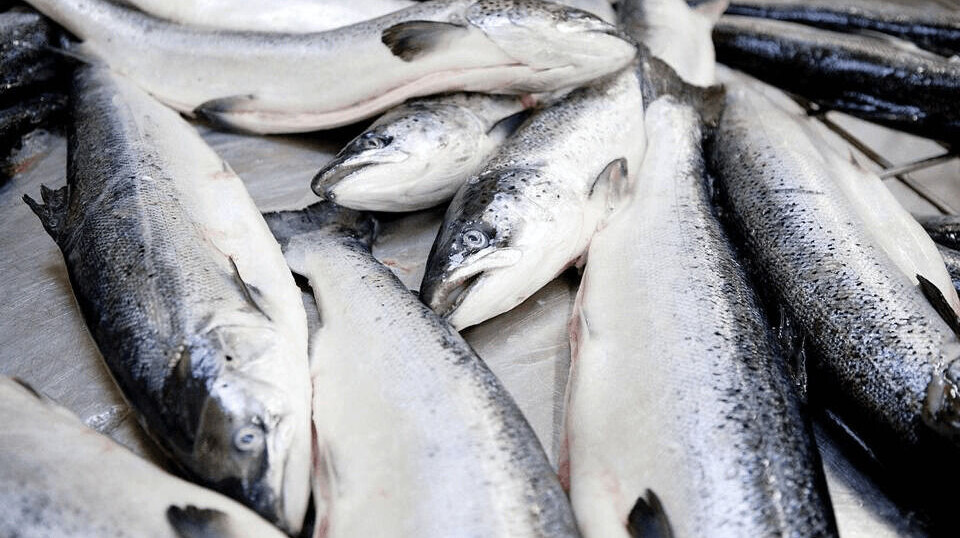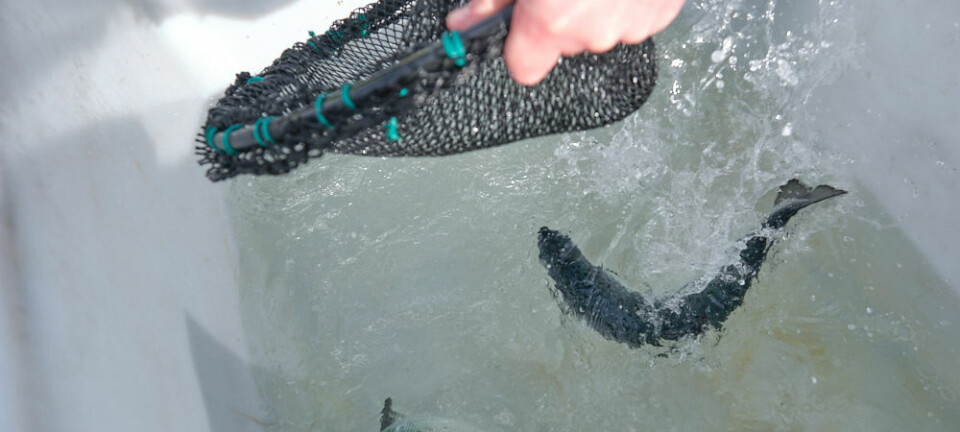
Charity repeats call for fish slaughter legislation
The Humane League UK, a charity opposed to intensive farming, has renewed its call for the UK Government to give farmed fish the same legal protections as farmed land animals.
The charity says that up to 77 million farmed fish are slaughtered each year in the UK and claims there is little oversight of their welfare at slaughter and no legal provisions detailing how to minimise pain for fish at the point of slaughter.
According to The Humane League, this means that animal abuse is less likely to be detected or punished, as welfare is currently regulated by the fish farming industry itself.
'Forgotten victims'
Cordelia Britton, head of programs at the charity, claimed that farmed fish were “forgotten victims” that, like all animals, suffer at slaughter.
“Despite every land animal species having species-specific legal protections at the time of killing, fish have no such thing. This is an unjustifiable discrepancy in the law, resulting in these sensitive beings being exposed to more cruelty than necessary,” said Britton.
“We have a new government, from the party which passed the Animal Welfare Act - they must carry on that torch and act to protect millions of fish from unnecessary suffering at slaughter.”
The charity pointed out that the UK Government’s Animal Welfare Committee (AWC) issued an opinion last year affirming the need for the UK’s farmed fish to receive better legal protections at slaughter.
The report argued that the Government must legislate to ensure that fish are stunned before slaughter and killed before regaining consciousness, that they should be killed in water or shortly after being removed from it, and that a back-up stunning process must be available.
Follow Norway
The Humane League wants detailed slaughter regulations including stunning for fish included in law. This would include regular inspections of farmed fish welfare at slaughter, as well as providing guidance on how to calibrate slaughter machines.
It argues that the world’s biggest salmon producer, Norway, already has a law mandating the pre-slaughter stunning of farmed fish and the UK should follow suit.
Salmon farming companies in Scotland all subscribe to the Code of Good Practice for Scottish Finfish Aquaculture, which states that crowding fish prior to harvesting should be for the minimum time possible, especially where more than one crowding session is necessary to complete the harvest.
The Code adds that killing efficiency should be monitored by a proficient person to ensure fish do not regain consciousness prior to death.
In-water stunning
Salmon farmer Scottish Sea Farms has been a leader in the use of in-water stunning, which reduces stress on fish at harvest, and Mowi, which is Scotland’s and the world’s biggest salmon producer, received a special award from campaigning charity Compassion in World Farming (CIWF) in 2022 in recognition of its use of a stun-kill percussive system for 100% of its salmon.
A spokesperson for the Humane League said that although the salmon industry reports that stunning is happening in 100% of cases, “the issue is that this may not be being carried out effectively, and there is no government oversight as the industry is self-regulated, unlike with land farmed animals”.
They added: “The Humane Slaughter Association reports that around 80% of salmon and trout combined are stunned, meaning that for trout, an industry about which it is extremely difficult to obtain information, the number of animals being stunned before slaughter could be much lower.”
Five-year-old video
The Humane League’s website contains a video showing fish at a harvest station being repeatedly coshed and being bled while still conscious. The clip appears to be a video made in late 2019 by an animal activist working undercover at the Scottish Salmon Company harvest station at Arnish, Lewis, before the company was bought by Faroese company Bakkafrost.
The video was made public by campaign group Animal Equality in 2021. Asked why, if it was so concerned about fish welfare, Animal Equality hadn’t released the video immediately, executive director Abigail Penny said the group had been prepared to release it in March 2020, but the Covid-19 pandemic struck, “and we didn’t feel it was appropriate at the time that the pandemic was spreading for us to then share this publicly”.
'Go veggie'
Although The Humane League’s initial aim is to win legal protection for fish, it’s long-term ambition is to persuade people to stop eating them.
“Firstly, they should enjoy at least the bare minimum protections afforded to chickens and other animals used for food,” states the charity.
“Taking it a step further, we need to ask ourselves whether it’s ethical for us to be raising them, and other animals who feel pain, by the billions, purely for slaughter and consumption.”


























































